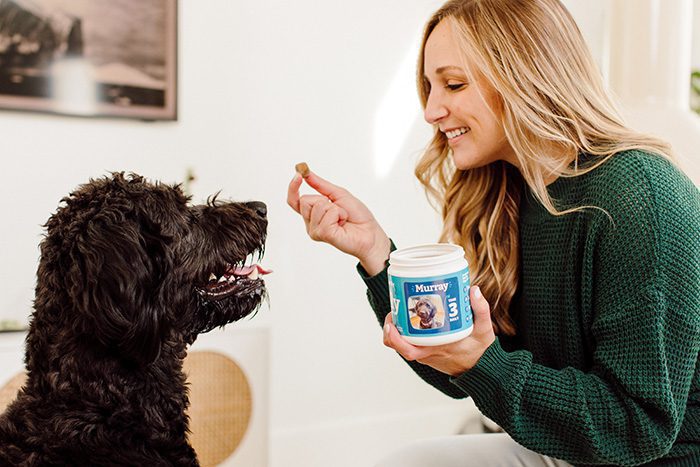Hypoallergenic dog breeds produce fewer allergens, making them ideal for people with allergies. These breeds often have coats that shed less dander, saliva, and urine proteins like Can f 1, which trigger reactions. While no dog is completely allergen-free, choosing the right one can reduce sneezing, itching, and watery eyes.
This guide explores top hypoallergenic dog breeds, their traits, care tips, and more to help you find a furry friend that fits your life.
The Science Behind Hypoallergenic Dogs
Hypoallergenic dog breeds are designed by nature to minimize allergen spread, but understanding the biology helps you make smarter choices. Allergies to dogs come from proteins like Can f 1, found in dander, saliva, and urine.
These proteins become airborne when dogs shed or groom themselves, leading to symptoms in sensitive people.
Why Some Breeds Are Better for Allergies
Certain traits make hypoallergenic dog breeds less problematic:
- Coat Structure: Curly or wiry coats, like those on Poodles or Schnauzers, trap dander near the skin instead of letting it float around.
- Low Shedding: Breeds with hair-like fur, such as the Maltese, shed minimally, reducing dander in your home.
- Saliva Factors: Some breeds produce lower levels of allergenic proteins, though research is ongoing.
Studies show that while hypoallergenic breeds don’t eliminate allergens, they can lower environmental levels compared to heavy shedders.
For example, a study found higher Can f 1 in hair of some hypoallergenic breeds, but home dust levels were similar across breeds.
Grooming’s Role in Allergen Control
Regular care amplifies a breed’s hypoallergenic benefits. Brushing removes trapped dander, and baths wash away proteins. Vets recommend this routine to keep allergens low and maintain skin health.
By grasping these basics, you can pair a hypoallergenic dog breed with habits that suit your allergies.

Top Hypoallergenic Dog Breeds
Exploring hypoallergenic dog breeds reveals options for every lifestyle, from energetic adventurers to cozy lap dogs. These breeds are selected for their low-dander coats and friendly natures, backed by experts like the American Kennel Club.
Below, we detail 10 standout choices with pros, cons, and care notes.
Poodle: The Versatile Genius
Poodles come in toy, miniature, and standard sizes, making them adaptable to various homes. Their curly, dense coat traps allergens effectively, but they need mental stimulation due to their high intelligence.
- Pros: Highly trainable, low shedding, great for families.
- Cons: Requires frequent grooming to avoid mats.
- History: Originally water retrievers in Germany, now beloved companions.
- Health Notes: Prone to hip dysplasia; average lifespan 12-15 years.
Ideal for active owners who enjoy training sessions.
Bichon Frise: The Joyful Fluff Ball
This small breed’s white, curly coat resembles a powder puff, minimizing dander spread. Bichons are cheerful and love people, thriving in social settings.
- Pros: Affectionate, low energy for apartments.
- Cons: Can be prone to separation anxiety.
- History: From the Mediterranean islands, once circus performers.
- Health Notes: Watch for dental issues; lifespan 14-15 years.
Perfect for those seeking a playful yet relaxed pet.
Maltese: The Elegant Companion
Maltese dogs boast long, silky hair that sheds little, making them a top hypoallergenic choice. They’re gentle and bond deeply with owners, suiting quiet households.
- Pros: Small size, calm temperament.
- Cons: Fragile bones, needs careful handling.
- History: Ancient lap dogs favored by royalty.
- Health Notes: Eye problems are common; lifespan 12-15 years.
Great for seniors or city living.
Schnauzer: The Loyal Watchdog
Available in miniature, standard, and giant sizes, Schnauzers have wiry coats that shed minimally. They’re alert and protective, blending fun with guardianship.
- Pros: Intelligent, good with kids.
- Cons: Can be stubborn during training.
- History: Farm dogs from Germany, rat catchers.
- Health Notes: Risk of pancreatitis; lifespan 12-15 years.
Suits families wanting a vigilant friend.
Portuguese Water Dog: The Energetic Athlete
These medium to large dogs have curly, waterproof coats ideal for allergy sufferers. They’re hardworking and love water activities.
- Pros: Athletic, family-oriented.
- Cons: High energy needs daily exercise.
- History: Fishermen’s helpers in Portugal.
- Health Notes: Hip issues possible; lifespan 11-13 years.
Best for outdoor enthusiasts.
Yorkshire Terrier: The Feisty Mini
Yorkies have fine, hair-like coats that grow long but shed little. Despite their size, they’re bold and adventurous.
- Pros: Portable, low allergen.
- Cons: Can bark excessively.
- History: Rat hunters in England.
- Health Notes: Dental care crucial; lifespan 13-16 years.
Fits apartment dwellers with spunk.
Shih Tzu: The Loving Charmer
Shih Tzus feature flowing coats that trap dander, paired with affectionate personalities. They’re content with indoor life.
- Pros: Low energy, great cuddlers.
- Cons: Prone to overheating.
- History: Tibetan palace dogs.
- Health Notes: Breathing issues; lifespan 10-18 years.
Ideal for relaxed homes.
Havanese: The Playful Socialite
Cuba’s national dog, the Havanese, has a wavy coats that shed minimally. They’re outgoing and trainable.
- Pros: Adaptable, good with children.
- Cons: Needs companionship.
- History: Cuban lap dogs.
- Health Notes: Heart conditions; lifespan 14-16 years.
Suits social families.
Lagotto Romagnolo: The Smart Forager
This Italian breed’s woolly coat is hypoallergenic and water-resistant. They’re curious and excel in scent work.
- Pros: Intelligent, low shedding.
- Cons: Requires mental stimulation.
- History: Truffle hunters.
- Health Notes: Epilepsy risk; lifespan 15-17 years.
For those who enjoy puzzles and hikes.
Afghan Hound: The Graceful Beauty
Afghan Hounds have silky, flowing hair that produces low allergens. They’re independent yet loyal.
- Pros: Elegant, low dander.
- Cons: High grooming demands.
- History: Ancient hunters in Afghanistan.
- Health Notes: Sensitive to cold; lifespan 12-14 years.
Appeals to those valuing style.
Comparison Table: Hypoallergenic Dog Breeds Overview
| Breed | Size | Energy Level | Grooming Needs | Temperament |
|---|---|---|---|---|
| Poodle | Small-Large | High | High | Intelligent |
| Bichon Frise | Small | Medium | High | Cheerful |
| Maltese | Small | Low | High | Gentle |
| Schnauzer | Small-Large | Medium-High | Medium | Alert |
| Portuguese Water Dog | Medium-Large | High | Medium | Active |
| Yorkshire Terrier | Small | Medium | High | Spirited |
| Shih Tzu | Small | Low | High | Affectionate |
| Havanese | Small | Medium | High | Playful |
| Lagotto Romagnolo | Medium | High | Medium | Curious |
| Afghan Hound | Large | Medium | High | Elegant |
Pro Tip: Match energy levels to your routine for a happy partnership.

Hypoallergenic Mixed Breeds: Weighing the Options
Hypoallergenic mixed breeds, like doodles, combine traits from low-allergen parents but come with uncertainties. These hybrids aim to blend hypoallergenic qualities with other desirable features, yet genetics play a big role.
Understanding pros and cons helps you decide if they’re right.
Appeal of Hybrids
Designers like Goldendoodles (Golden Retriever + Poodle) or Labradoodles offer friendly temperaments and potential low shedding.
- Pros: Often sociable, intelligent; may inherit curly coats.
- Cons: Shedding varies; not always hypoallergenic.
Genetic Challenges
Inheritance is unpredictable—puppies might get shedding fur or low-dander traits.
- Variability: Litter mates differ in allergen levels.
- Breeder Tips: Choose those testing for hypoallergenic lines.
For reliability, purebreds may be better, but mixes can work with testing.
Health Considerations for Hypoallergenic Dog Breeds
Many hypoallergenic dog breeds share health traits due to their genetics, and knowing these helps prevent issues. As a veterinary science writer, I emphasize proactive care to keep these pets thriving.
Common concerns include skin conditions from grooming needs, and breed-specific ailments.
Common Health Issues
- Skin and Coat Problems: Frequent in curly-coated breeds; allergies or infections arise without proper grooming.
- Joint Concerns: Larger ones, like Portuguese Water Dogs, may face hip dysplasia.
- Eye and Dental Care: Small breeds like Maltese need regular checks for tear staining or tooth decay.
Prevention Strategies
- Vet Visits: Annual exams catch issues early.
- Diet: High-quality food supports skin health.
- Exercise: Balances energy to avoid obesity.
Addressing health early ensures a long, happy life with your hypoallergenic companion.

Choosing the Right Hypoallergenic Dog for Your Lifestyle
Picking among hypoallergenic dog breeds involves matching their needs to your daily life for a seamless fit. Factors like energy and space guide the best choice. Start by assessing your routine to avoid mismatches.
Energy Alignment
- Active Lifestyles: Poodles or Lagottos suit runners.
- Calm Homes: Maltese or Shih Tzus prefer lounging.
Space Needs
- Small Areas: Yorkies thrive in apartments.
- Large Yards: Afghan Hounds enjoy room to run.
Budget Factors
Grooming costs $50-100 monthly for high-maintenance breeds.
Allergy Testing
Spend time with the dog to check reactions.
Use shelters or breeders for trials.
Caring for Your Hypoallergenic Dog
Maintaining hypoallergenic dog breeds requires consistent routines to control allergens and promote wellness. Grooming and home tweaks form the core. With these steps, you create a comfy space for all.
Grooming Essentials
- Brushing: Daily for curly coats to remove dander.
- Bathing: Every 2-4 weeks with hypoallergenic shampoo.
- Pro Sessions: Every 4-8 weeks.
Home Setup
- HEPA Tools: Vacuums and purifiers trap particles.
- Cleaning: Weekly washes for bedding.
Allergy Aids
- Meds: Antihistamines for flare-ups.
- Wipes: Clean paws post-outdoors.
Holistic care keeps allergens low.
Debunking Myths About Hypoallergenic Dog Breeds
Myths about hypoallergenic dog breeds can mislead potential owners, but facts clarify the picture. No breed is magic, but informed choices work. Let’s bust common ones with evidence.
Myth 1: They Don’t Shed At All
Fact: Minimal shedding occurs, but dander is the real issue.
Myth 2: Only Small Dogs Qualify
Fact: Sizes vary; coat type matters more.
Myth 3: They’re Fully Allergen-Free
Fact: Reduced, not zero allergens.
Research debunks these for better decisions.
FAQs
What are hypoallergenic dog breeds?
Hypoallergenic dog breeds are those that produce fewer allergens through low-shedding coats. They help reduce symptoms but don’t eliminate them. Examples include Poodles and Bichons.
Are there any completely allergen-free dogs?
No dog is 100% allergen-free, as all produce proteins like Can f 1. Hypoallergenic breeds just minimize exposure. Always test your reaction personally.
How can I test if a hypoallergenic dog breed suits my allergies?
Spend time with the breed at a shelter or breeder’s home. Monitor symptoms over 24-48 hours. This direct exposure is the best way to know.
What grooming is required for hypoallergenic dogs?
Most need daily brushing and baths every few weeks to control dander. Professional grooming every 4-8 weeks prevents mats. Use gentle tools for the best results.
Are mixed breeds like doodles hypoallergenic?
Mixed breeds can inherit hypoallergenic traits, but it’s not guaranteed due to genetics. Some doodles shed less, others more. Research parents and test puppies.
Conclusion
Hypoallergenic dog breeds offer allergy sufferers a way to enjoy pet companionship with fewer issues, from Poodles to Shih Tzus. The key to success is matching breeds to your lifestyle, grooming regularly, and managing your home environment.
Start by visiting a vet or allergist for personalized advice, then welcome a loyal friend who brings joy without the sneezes.






